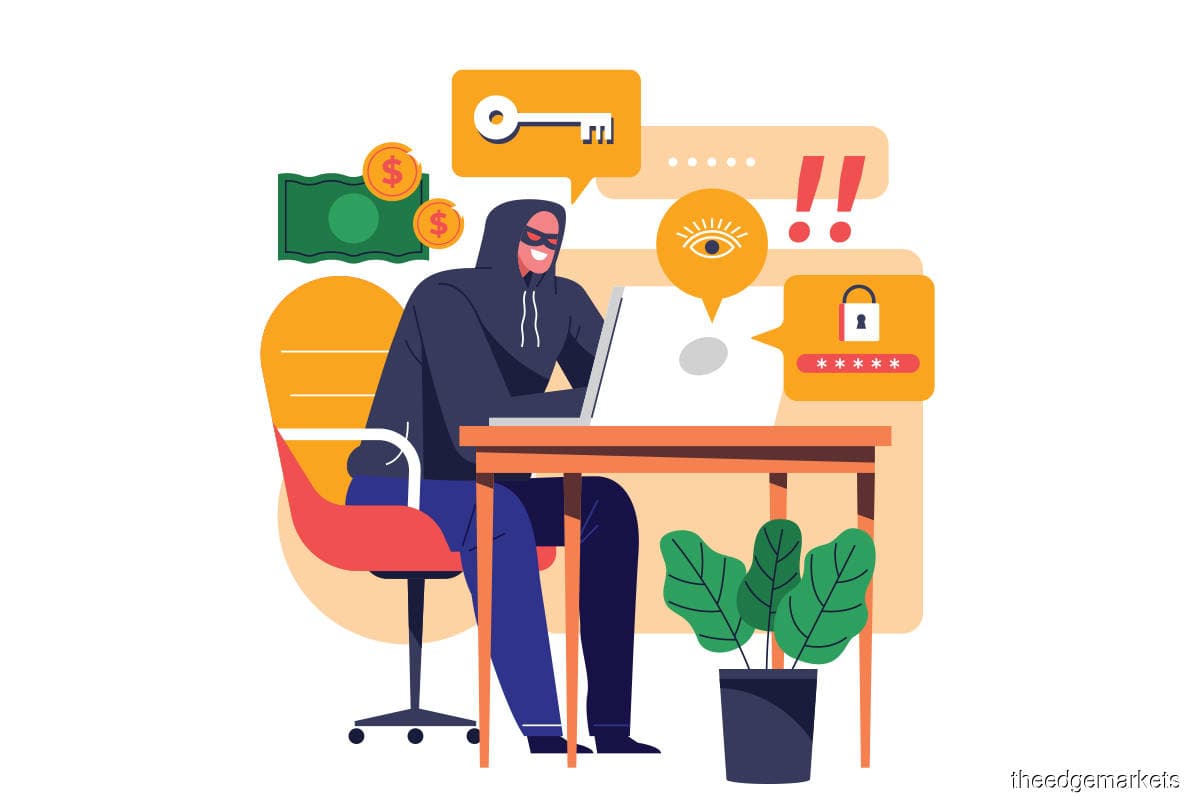
This article first appeared in Digital Edge, The Edge Malaysia Weekly on August 23, 2021 - August 29, 2021
The internet’s exponential growth has resulted in various new ways for those with nefarious intentions (commonly known as bad actors) to cause harm. Hackers can access important data such as your bank account details, your social media or even your personal photos in the cloud.
It would be convenient to use the same password or login details for most of your online accounts, but it is also unsafe. Since malicious attackers like to target the unprotected and those who are less cautious than they should be, here are some basic yet core aspects of being careful and vigilant online.
1 Suspicious links
Never click on suspicious links. When opening emails, make sure you know who the sender is. If it is a business email, check the company’s website to ensure that the same email is being used.
Phishing occurs when attackers pretend to be a trusted source to gain access to your personal information. Apply caution and good security practices, like being sceptical and confirming whether the website that is being used is secure.
2 Message from your friend
Apart from fake business accounts or websites, attackers can also masquerade as a friend of yours. A popular method of late is that the hacker would pretend to be your friend (a contact that you have saved on your device) and would message you to ask for a set of numbers or code.
Never share the code or number. This would eventually be used to gain access to your account and lock you out. If the conversation is vague and your “friend” is in a rush begging you for the code, it is highly likely that the person is not someone you know.
Always ask questions.
3 Passwords
If your account has been compromised, immediately change all of your passwords. Letting your contacts know that your account has been compromised is good too.
A weak password that has been reused, and has probably appeared in various data leaks, will make you more susceptible to harm. Haveibeenpwned.com, a free service developed by Microsoft regional director Troy Hunt, checks whether your email or phone number has been in a data breach.
Level up your security, make your passwords stronger and longer, and use a password manager with two-factor authentication.
4 Public WiFi
Free WiFi is good, but it can come at a cost. Unsecured networks can allow hackers to monitor and access all the information that you put online. Hackers can also use an unsecured WiFi network to spread malware.
Try to use a virtual private network (VPN) service when accessing public WiFi, as it will encrypt your data. There are plenty of free options, such as ProtonVPN, available on various devices.
5 Not updating software
Keep your software updated as this will decrease the number of bugs and vulnerabilities that hackers can exploit. Anti-virus software can also be purchased as an added form of security.
Save by subscribing to us for your print and/or digital copy.
P/S: The Edge is also available on Apple's AppStore and Androids' Google Play.




